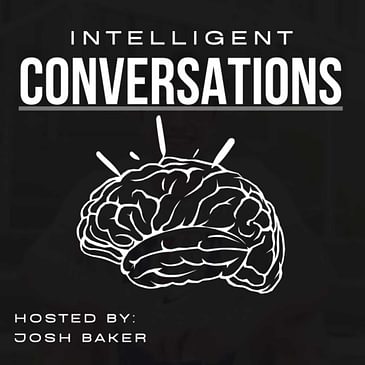Listen to Sabeen Sheikh share her journey of helping student improve communication. Sabeen is an educator at the University of Maryland and teaches students how to communicate better in their professional and personal lives. Sabeen has helped students overcome that fear of public speaking, which is the second most feared thing to do in the United States. Tune in now to Sabeen Sheikh learn how we can communicate better!
Hosted By: Josh Baker
Guest(s): Sabeen Sheikh
You can connect with Sabeen Sheikh on LinkedIn!
Follow the Intelligent Conversations on Social Media to
stay updated!
Subscribe to Intelligent Conversations on Your Favorite
Place to Listen!

